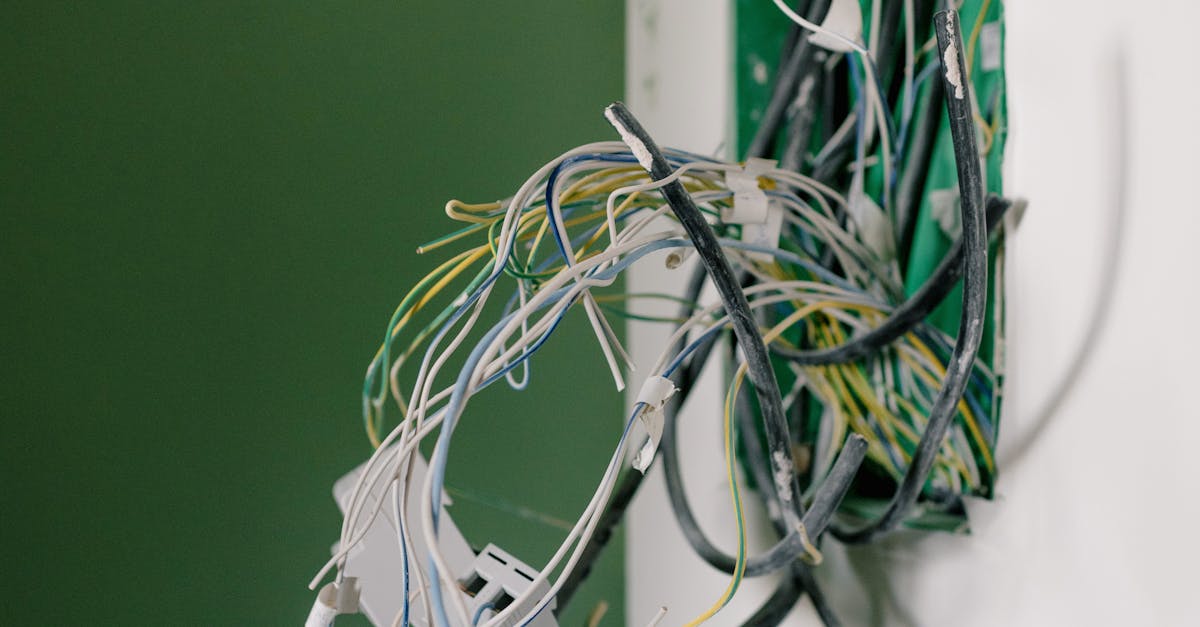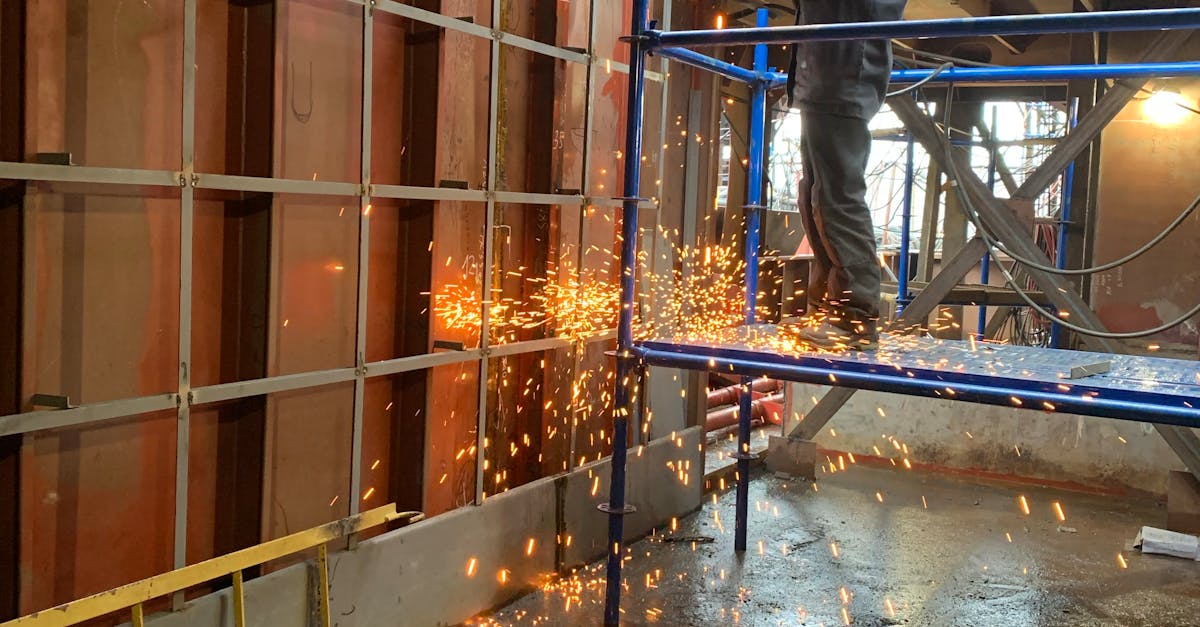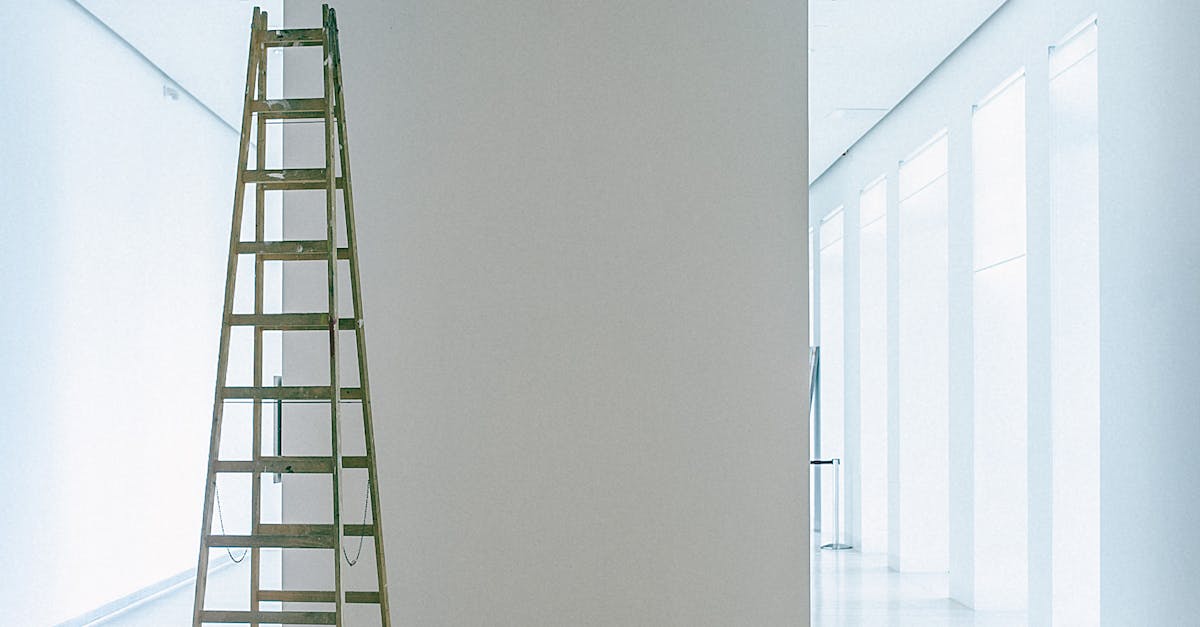
Table Of Contents
Securing and Testing the Gas Line
When securing and testing the gas line, it is crucial to begin by ensuring you have all the necessary tools and materials ready. These may include a pipe wrench, tubing cutter, pipe thread sealant, gas pressure gauge, and leak detection solution. Prior to starting any work, make sure to turn off the gas supply from the main valve to prevent any accidents. It is essential to wear appropriate safety gear like gloves and safety goggles throughout the installation process. Keep in mind that safety is paramount when dealing with gas-related tasks.
Gas line installation and repair near me should always be carried out with utmost care and precision. Once the gas line is securely installed, it is pivotal to conduct a thorough test to check for any leaks or malfunctions. To do this, pressurize the line and carefully inspect all connections and joints for signs of leaks. Utilize a gas pressure gauge and a leak detection solution to identify any issues promptly. Remember to never neglect this crucial step, as even a small leak can lead to hazardous consequences.
Checking for Leaks and Ensuring Safety Measures
Check for leaks once the gas line installation is complete. Use a gas leak detector solution or soapy water on all connections and fittings. If bubbles form, there is a leak that needs to be addressed immediately. Additionally, utilize a gas leak detector tool to ensure there are no undetected leaks along the gas line. Safety precautions such as wearing protective gear and working in a well-ventilated area should be strictly adhered to during this process to prevent any potential hazards.
Ensuring safety measures are paramount when dealing with gas line installation. Always follow local codes and regulations to guarantee a safe installation process. It is recommended to seek professional assistance if unsure about any step of the installation. For safety reasons, refrain from attempting to address major gas line issues without appropriate knowledge and tools. Gas line installation and repair near me services can provide expert assistance and ensure the safety of both the installation process and the occupants of the property.
Connecting the Gas Line to Appliances
When connecting the gas line to appliances, it is crucial to ensure that the connections are secure to prevent any leaks. Begin by attaching the appropriate connectors to both the gas line and the appliance following the manufacturer's instructions. Tighten the connections using a wrench, but be cautious not to over-tighten them as this can cause damage.
After securely connecting the gas line to the appliances, it is essential to test for any leaks. Utilize a gas leak detector solution or soap and water mixture to check for bubbles around the connections. If you notice any bubbles forming, immediately turn off the gas supply and rectify the issue before proceeding. Ensuring that the connections are airtight is paramount for the safety of your household. Remember, for assistance in gas line installation and repair near me, always consult a professional technician.
Installing Gas Connectors and Valves
Installing gas connectors and valves is a critical step in ensuring the safety and functionality of a gas line installation. When selecting connectors and valves, it is crucial to choose high-quality materials that are compatible with the type of gas being used. Brass, stainless steel, and copper are commonly used materials for gas connectors due to their durability and resistance to corrosion. Similarly, valves must be selected based on their intended purpose, whether it be for regulating gas flow or shutting off the gas supply entirely in case of emergency.
Gas line installation and repair near me can be carried out by professionals who have the knowledge and expertise to handle the intricacies of connecting gas lines to appliances. It is essential that connectors are installed correctly to prevent gas leaks, which can pose significant safety hazards. Additionally, valves should be strategically placed to ensure easy access in case of emergencies or routine maintenance. By adhering to proper installation practices and using quality connectors and valves, homeowners can enjoy a safe and efficient gas supply for their appliances.
Sealing and Insulating the Gas Line
When it comes to sealing and insulating the gas line, it is crucial to ensure that all connections are securely sealed to prevent any leaks. This can be achieved by using appropriate sealants that are specifically designed for gas lines. Insulating the gas line is also important, especially in areas where the temperatures fluctuate significantly. Insulation helps to maintain a consistent temperature within the gas line, preventing any condensation buildup that could potentially damage the line.
Gas line installation and repair near me should always be carried out by qualified professionals who have the necessary skills and knowledge to complete the job safely and effectively. By ensuring that the gas line is properly sealed and insulated, you can enhance the overall safety and efficiency of your gas system. Additionally, regular maintenance checks should be conducted to detect any potential issues early on and address them promptly to prevent any larger problems from occurring.
Protecting the Line Against Environmental Factors
When considering the protection of a gas line against environmental factors during installation, it is crucial to acknowledge the potential impact of various elements. Factors such as extreme temperatures, moisture, and physical damage can pose a risk to the integrity of the gas line. To mitigate these risks, choosing the appropriate materials that are resistant to these elements is essential. Investing in durable materials that can withstand harsh weather conditions will enhance the longevity and safety of the gas line.
Additionally, ensuring proper insulation around the gas line can further safeguard it from environmental factors. Insulation helps maintain the temperature of the gas inside the line and prevents damage caused by exposure to extreme heat or cold. By prioritising insulation during the installation process, you can protect the gas line from potential vulnerabilities. Seeking professional guidance on selecting suitable insulation materials and techniques can contribute to the overall effectiveness of safeguarding the gas line. Gas line installation and repair near me can provide valuable insights into securing your gas line against environmental factors.
FAQS
What safety precautions should I take before installing a gas line?
Before installing a gas line, make sure to turn off the gas supply, wear appropriate safety gear such as gloves and goggles, and ensure proper ventilation in the area where you will be working.
How do I secure and test the gas line during installation?
To secure the gas line, use appropriate fittings and connectors, and ensure all connections are tight. Test the gas line for leaks using a solution of soapy water, and check for any bubbles that may indicate a leak.
What are some safety measures to consider when installing a gas line?
Safety measures include checking for gas leaks regularly, keeping flammable materials away from the gas line, and installing carbon monoxide detectors in the area where the gas line is installed.
How do I connect the gas line to appliances?
When connecting the gas line to appliances, use approved gas connectors and valves, follow the manufacturer's instructions for proper installation, and ensure all connections are secure.
How can I seal and insulate the gas line for added protection?
Seal the gas line connections with appropriate sealant to prevent leaks, and insulate the gas line in areas where it may be exposed to extreme temperatures to ensure its longevity and efficiency.


